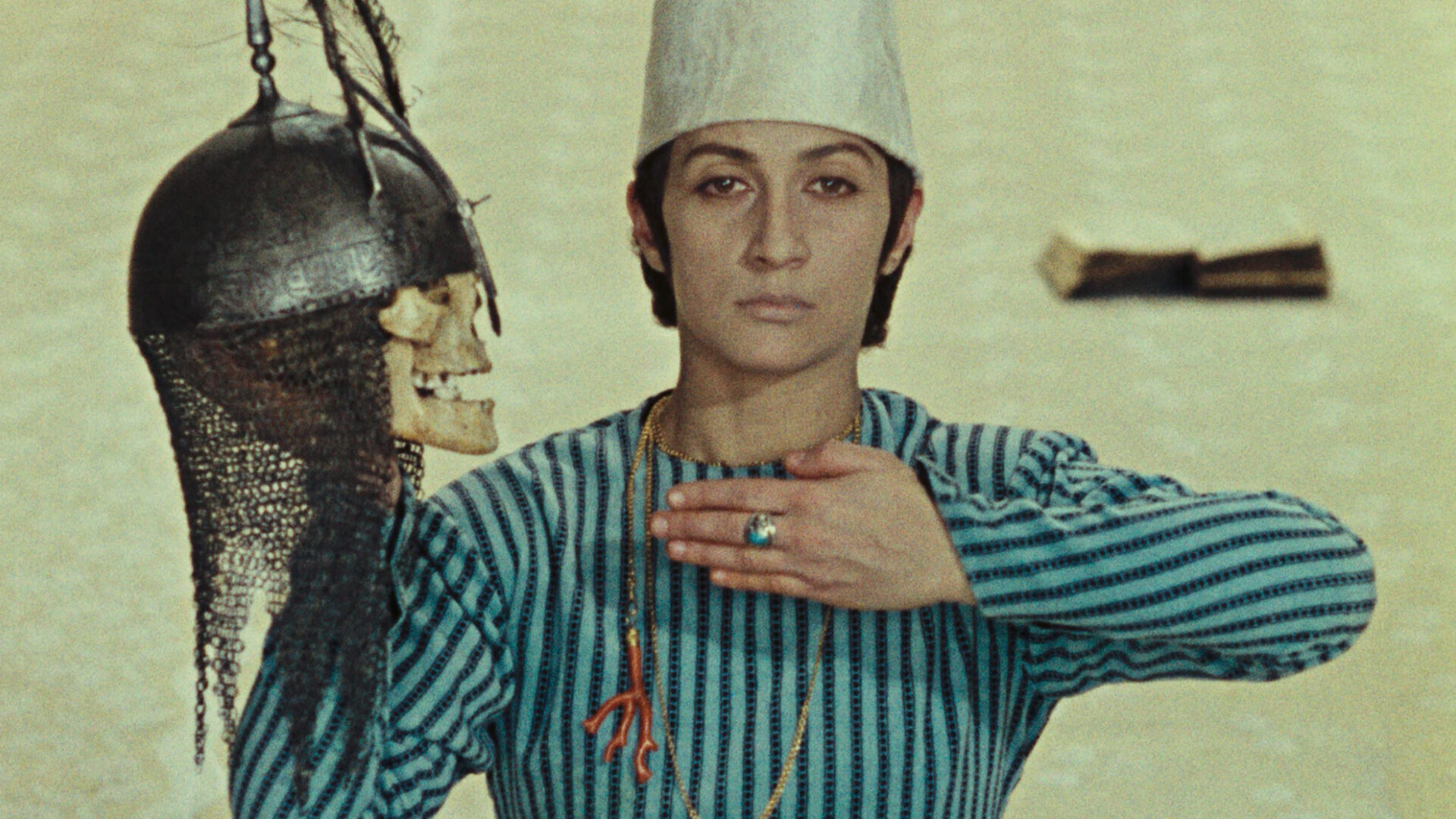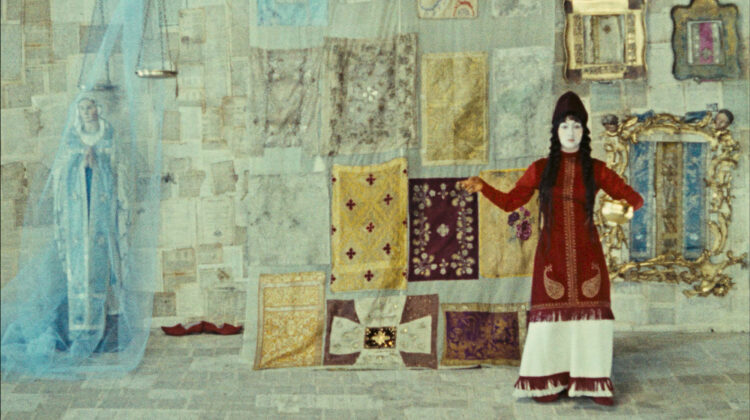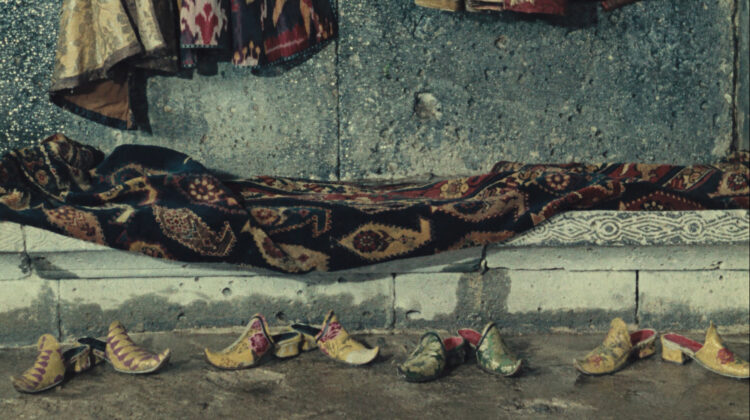Moving Mountains: The Centenary of Armenian Cinema
- The Colour of Pomegranates
- aka Sayat Nova)
(Նռան գույնը - USSR1969
- Sergei Parajanov
- 78 DCP
- NR
- Moving Mountains: The Centenary of Armenian Cinema
Screening Dates
- June 17, 2023 6:30
- June 19, 2023 8:40
- June 22, 2023 6:30
“An extraordinary film … Parajanov’s compositions are astonishing, and no one has ever made the olive-and-orange tones of Soviet colour stock look better … Sublime and heart-breaking.”
J. Hoberman, Village Voice
While the Tbilisi-born, Kyiv-based Sergei Parajanov only made one feature and one short film in Armenia, his seminal masterpiece The Colour of Pomegranates has come to inextricably define international perceptions of Armenian “national” cinema. Commissioned by the state studio, Hayfilm, to make a biopic of the great 18th-century Armenian ashugh (troubadour) Sayat Nova, Parajanov turned the task on its head, reinventing the genre as a psychological dreamscape rendered through a surreal inversion of medieval Armenian art, architecture, and music. This non-linear and purely associative approach was an extreme example of 1960s Soviet “poetic cinema.” Combined with the heavy emphasis on traditional religious iconography and erotic symbolism, the director’s creative anarchism led to accusations of homosexuality and nationalist propaganda, resulting in the film’s recutting and Parajanov’s subsequent imprisonment. Despite this, The Colour of Pomegranates began to circulate on the international festival scene, inspiring major filmmakers like Federico Fellini, Mohsen Makhmalbaf, and, most recently, Ari Aster.
In Armenian with English subtitles
“The striking use of tableau frames recalls the shallow space of movies made roughly a century ago, while the gorgeous uses of colour and the wild poetic conceits seem to derive from some utopian cinema of the future, at once ‘difficult’ and immediate, cryptic and ravishing. This is essential viewing.” Jonathan Rosenbaum, Chicago Reader
preceded by (June 17 only)
Autumn Sun
Աշնան արև
Armenia 2006
Diana Kardumyan
8 min. DCP
A ballerina, returning home from her dance academy, feels that a young man is following her through the hot summer streets of Yerevan. Or perhaps this is just her imagination? Based on a short story by Tonino Guerra, Diana Kardumyan’s second short film is a poetic ode to lost youth and the ambiguous nature of desire. Kardumyan became one of the first women filmmakers to stand at the forefront of Armenian cinema’s slow recovery in the 2000s, after years of stagnation. Her impressionistic aesthetic exemplified a sensual and fluid sensibility that brought an entirely new perspective to local filmmaking trajectories, in which women directors had only a fractional presence previously.
In Armenian with English subtitles




